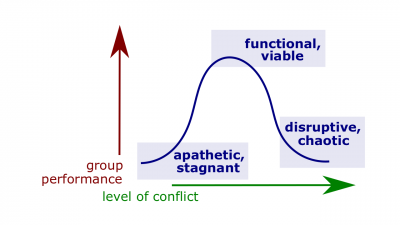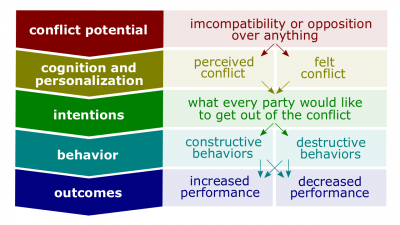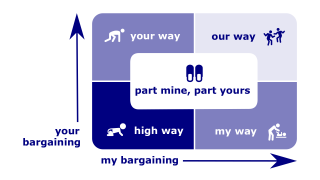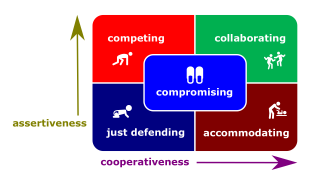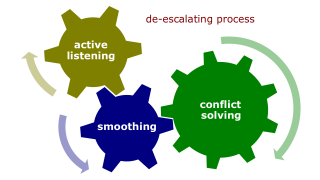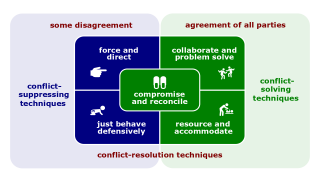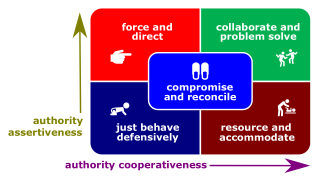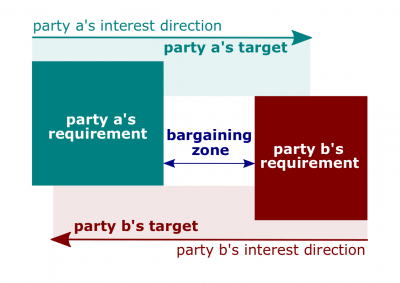OB conflict concepts
OB conflict concepts are those concepts that are related to conflicts and negotiations researched in organizational behavior studies. The concepts below are taken from Organizational Behavior by Robbins and Judge (17th edition); Septem Artes Administrativi served as the primary source of illustrations.
Contents
Conflict
- Conflict. A process that begins when one party perceives that another party has negatively affected, or is about to negatively affect, something that the first party cares about.
Types of conflicts
- Functional conflict. Conflict that supports the goals of the group and improves its performance.
- Dysfunctional conflict. Conflict that hinders group performance.
- Task conflict. Conflict over content and goals of the work.
- Relationship conflict. Conflict based on interpersonal relationships.
- Process conflict. Conflict over how work gets done.
- Dyadic conflict. Conflict that occurs between two people.
- Intragroup conflict. Conflict that occurs within a group or team.
- Intergroup conflict. Conflict that occurs between different groups or teams.
Conflict process
- Conflict process. A process that has five stages: potential opposition or incompatibility, cognition and personalization, intentions, behavior, and outcomes.
- Perceived conflict. Awareness by one or more parties of the existence of conditions that create opportunities for conflict to arise.
- Felt conflict. Emotional involvement in a conflict that creates anxiety, tenseness, frustration, or hostility.
Conflict intentions
- Intention. A decision to act in a given way.
- Competing. A desire to satisfy one's interests, regardless of the impact on the other party of the conflict.
- Collaborating. A situation in which the parties to a conflict each desire to satisfy fully the concerns of all parties.
- Avoiding. The desire to withdraw from or suppress a conflict.
- Accommodating. The willingness of one party in a conflict to place the opponent's interests above his or her own.
- Compromising. A situation in which each party to a conflict is willing to give up something.
Conflict management
- Conflict management. The use of resolution and stimulation techniques to achieve the desired level of conflict.
Negotiation
- Negotiation. A process in which two or more parties exchange goods or services and attempt to agree on the exchange rate for them.
- Distributive bargaining. Negotiation that seeks to divide up a fixed amount of resources; a win-lose situation.
- Fixed pie. The belief that there is only a set amount of goods and services to be divided up between the parties.
- Integrative bargaining. Negotiation that seeks one or more settlements that can create a win-win solution.
- BATNA. The best alternative to a negotiated agreement; the least the individual should accept.
Third parties
- Mediator. A neutral third party who facilitates a negotiated solution by using reasoning, persuasion, and suggestions for alternatives.
- Arbitrator. A third party to a negotiation who has the authority to dictate an agreement.
- Conciliator. A trusted third party who provides an informal communication link between the negotiator and the opponent.
